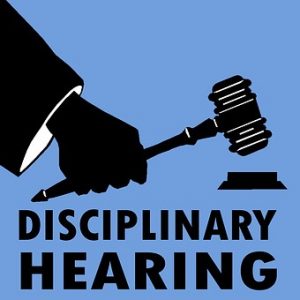No discussion of New Jersey employment law would be complete without New Jersey’s Civil Service System, which governs all state government employees, and employees of twenty of New Jersey’s twenty-one counties, and the majority of its municipalities.
As far back as 1961, the Appellate D ivision gave a cogent summary of the disciplinary procedures in New Jersey’s Civil Service Act, which is worth quoting ver batim.
ivision gave a cogent summary of the disciplinary procedures in New Jersey’s Civil Service Act, which is worth quoting ver batim.
Disciplinary proceedings against a civil servant are not only an attempt to determine the status of a particular individual; they are a statutorily authorized action to redress a wrong committed against the people of the State by one in whom the public trust has been officially reposed. The proceedings are therefore penal, or at least Quasi-penal, in nature, and deeply embedded constructional principles, supported by fundamental notions of fairness, dictate that in such an action the statute or regulation defining the alleged violation be construed to comport with the fair meaning of the language used. The theme of fairness threads its way through the notice, hearing, and right of appeal provisions of our Civil Service Act, and finds particular pertinence in those sections requiring that the causes for removal constituting ‘just cause’ be enumerated with specificity. The governing consideration, that one be fairly and completely advised of the nature of the charges against him, loses all effectiveness if it is not reinforced by a requirement that the proscribed activities and contingencies warranting disciplinary proceedings be set forth with reasonable particularity and construed accordingly.
 classifications are.
classifications are. New Jersey Lawyers Blog
New Jersey Lawyers Blog


 ivision gave a cogent
ivision gave a cogent  New Jersey’s government employees provide a wide range of services without which the public could not survive. These range from law enforcement to firefighting, mass transit, garbage removal, building and maintaining roads, ensuring the safety of buildings, protecting the civil rights of New Jersey’s citizens, protecting the environment, traffic safety, urban planning, parks, agriculture, guarding inmates, the list goes on – in short, they affect virtually every aspect of our lives.
New Jersey’s government employees provide a wide range of services without which the public could not survive. These range from law enforcement to firefighting, mass transit, garbage removal, building and maintaining roads, ensuring the safety of buildings, protecting the civil rights of New Jersey’s citizens, protecting the environment, traffic safety, urban planning, parks, agriculture, guarding inmates, the list goes on – in short, they affect virtually every aspect of our lives. All state employees, and the majority of state and local employees in New Jersey, are governed by the New Jersey’s civil service laws. In the case of
All state employees, and the majority of state and local employees in New Jersey, are governed by the New Jersey’s civil service laws. In the case of  Our employment attorneys handle New Jersey civil service appeals and litigation. The Appellate Division of New Jersey Superior Court recently issued a
Our employment attorneys handle New Jersey civil service appeals and litigation. The Appellate Division of New Jersey Superior Court recently issued a